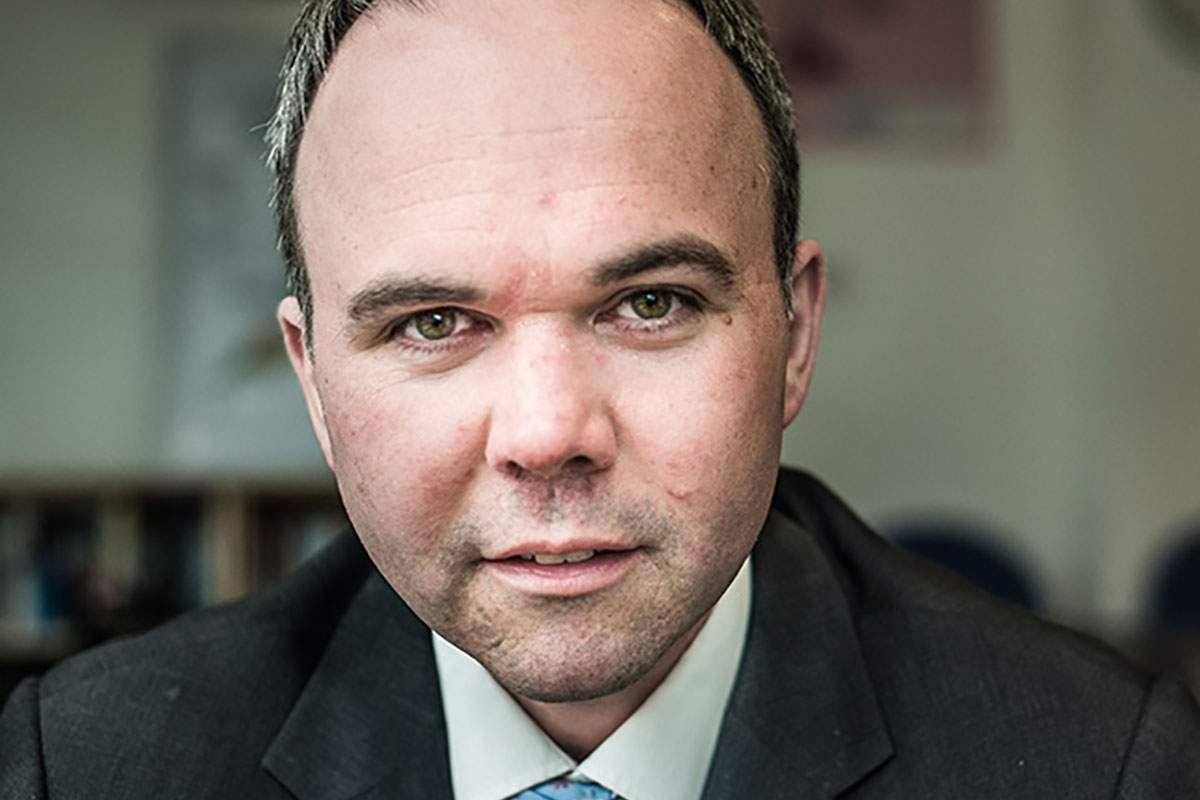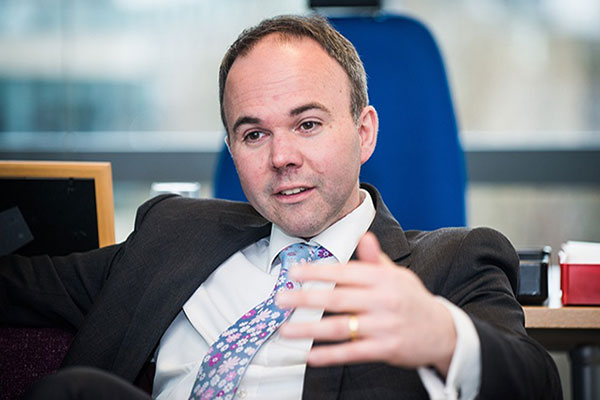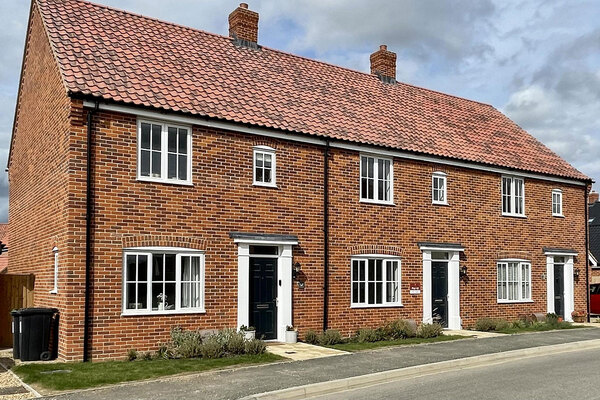You are viewing 1 of your 1 free articles
'I came into politics to help people change their lives for the better'
Gavin Barwell has overseen a major shift in policy in his first nine months as housing minister. He tells Gavriel Hollander about his quiet revolution
Gavin Barwell doesn’t seem like a political revolutionary. More than two decades working for the Conservative Party in one form or another - including 12 years as a local councillor in Croydon, where he is now an MP - speak of a man who does not rock too many boats. However, to some in the sector, his first nine months as housing minister have signalled a refreshing change in attitude and direction.
One senior housing sector figure is said to have described Mr Barwell’s tenure in the hot seat as the equivalent of switching from a Tory to Labour government. That description might not sit too comfortably with the 45-year-old, who first entered parliament in 2010.
But he does not pretend to be unaware of the warmth with which he has been received by a sector that has had a borderline hostile relationship with some of his predecessors.
If Mr Barwell has managed to win over parts of a sceptical sector, it’s by listening to it. His first six months in the job were chiefly spent putting together February’s Housing White Paper. He says he took on a lot of ideas ahead of publication and, immediately after, he hit the road to gauge reaction. In a sign of the openness with which he seems to approach politics, a round-up of views on the White Paper published on his blog includes that of his shadow, John Healey: “feeble beyond belief”, in case you were wondering.
Accepting tension
“I’ve been really pleased by the way people have responded [to the White Paper],” Mr Barwell tells Inside Housing from his office in the Department for Communities and Local Government. “I had a lot of initial conversations to try and understand why people with a lot more experience than me felt we weren’t building enough homes in this country and I’ve put a lot of time and effort to go round the country engaging with people to hear what they think about it.”
Engagement does seem to be up, and that’s been noticed by the sector. “I genuinely think he’s interested in doing some more meaningful stuff,” one source says, before expressing an oft-repeated fear. “We don’t want him to move, which is obviously a preoccupation given the merry-go-round the post has been in recent years.”
Since Grant Shapps left the job in September 2012 after five years with the portfolio (initially as shadow), neither Mark Prisk, nor Kris Hopkins, nor Brandon Lewis have lasted beyond two years. The latest incumbent offers a straight bat when asked if he’ll stay in the role any longer. “In politics, you don’t control what job you get. I don’t know how long I’m going to do it but I’m loving it.”
Other things that aren’t in Mr Barwell’s control are the policies he inherited, which he and the sector have to live with, in the short term at least. He is upfront about the policy areas in which there has been unease between his department and parts of the sector - he uses the word “honest” a lot when describing the conversations he has had so far. So what about some of those policies and the way they have been handled? Let’s start with the most controversial: the 1% rent cut imposed on the sector in July 2015’s emergency budget.
While sticking to the line that the cut was necessary to help with deficit reduction - “which is a very important issue for the country” - Mr Barwell says he understands the concerns of social landlords, some of which were forced to scrap development plans almost overnight.
“Of course I understand. When you speak to most people in the sector they do understand why the government did it but they rightly say that if your objective is to build more housing this has an impact.
“One of the things I’ve tried to do in the job is sometimes to be honest where there’s a tension between different objectives. That tension is just there and the government is clear that is the policy up until 2020.”
Mr Barwell says - as he has before - that the government will look to provide certainty on rents after 2020 soon. He won’t be drawn on a date, but recognises any anxiety there may be about it: “The sooner we can provide that certainty [the better]; that helps with the financial modelling of associations and their potential to provide more homes.”
The forced sale of high-value assets by councils to fund the Voluntary Right to Buy has been one of the other controversial issues to emerge from the first two years of Conservative housing policy. Perhaps tellingly, there was no mention of it in the White Paper and last November Mr Barwell announced a one-year delay before implementation. So, has the government gone cool on the idea? Not according to Mr Barwell.
“The manifesto was very explicit that [Right to Buy] should be paid for by the sale of high-value assets,” he says when quizzed on the delay. Instead of a U-turn, Mr Barwell is insistent that the cooling off period will be used to help define the terms of the deal for councils.
“This is a policy that local government is never going to love,” he accepts. “What we need to do is make sure we have thought clearly about how we define high value, and how the system works to make sure there is not an unreasonable impact on any individual local authority. I am not expecting people to welcome the policy with cheers; I am confident that when they see that detail they will feel we have listened to their concerns and tried to mitigate them.”
Despite the delay and the recent revelation that the Treasury had retained £800m of the £3.5bn in Right to Buy receipts collected since 2012, Mr Barwell maintains that he is a “very strong supporter of Right to Buy”. However, he adds that it should be a “pro-supply-side policy”, only achievable through the delivery of the promised replacement homes.
One area where there has been an about-face is on Starter Homes, with the requirement for there to be 20% on all new developments dropped. Mr Barwell likes the idea of Starter Homes but accepts that the 20% policy was flawed.
“We are still committed to Starter Homes but the way we are implementing it now will ensure that the homes that we get are additional and that we’re offering a range of different products to suit different circumstances around the country.”
Source: Simon Brandon
Learning curve
When Theresa May entered Number 10 last July, there was a sense of a shift in housing policy, away from focusing almost exclusively on homeowners. Mr Barwell’s open and pluralist approach seems to support this.
“I inherited a housing policy that was focused almost solely on ownership,” he admits. “I like to think what I now have is a housing policy that’s emphasised on both [ownership and rent]. We’ve not gone from ownership to rent; we’ve gone to a multi-tenure policy.”
“I came into politics to try and help people change their lives for the better and most people in this country still want to own their own homes, so I think it’s a big part of my job to try and have a housing policy that’s going to help them fulfil that dream. I think the fundamental change is to say the way that we do that is not through coming up with ever more complicated demand-side interventions that help a few more people who couldn’t reach the ladder get on to the bottom rung.”
Mr Barwell accepts he is on a learning curve, but he already talks about his “passion” for housing.
He is also clearly passionate about the power of politics to change things. “I know people are often sceptical about politics, but I’m a great believer in our system,” he says.
Just hours after the interview, that system was attacked when Khalid Masood launched his fatal assault on parliament, leaving five dead. Mr Barwell, who is also minister for London, used his blog to defend the institutions he cherishes.
“We are all committed to democracy,” he wrote. “To the idea that the way we resolve our differences is through debate.” Certainly not the words of a revolutionary, but maybe of a housing minister who is prepared to listen.
Gavin Barwell is speaking at Housing 2017, the CIH conference and exhibition. Book at www.insidehousing.co.uk/housing2017











